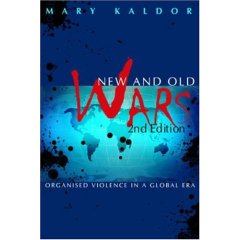
Alex Steffen (ed.)
Worldchanging: a user's guide for the 21st century
Abrams, 2006, 333.7 WOR
Worldchanging began with the belief "That the motive, means and opportunity for profound positive change are already present. That another world is not just possible, it's here. We only need to put the pieces together".
From this simple premise has developed a dynamic not for profit organisation that provides a sophisticated web resource for anyone interested in the ways technology, organisation and collective action can change the world for the better. Having won much critical acclaim as a blog, and demonstrating the great power and usefulness of blogging as a developing medium, Worldchanging.com has been described by science fiction author Bruce Sterling as "The most important web site on the planet".
Browse the website or borrow the book from the RSA Library, and remember, "Changing the world is a team sport."


